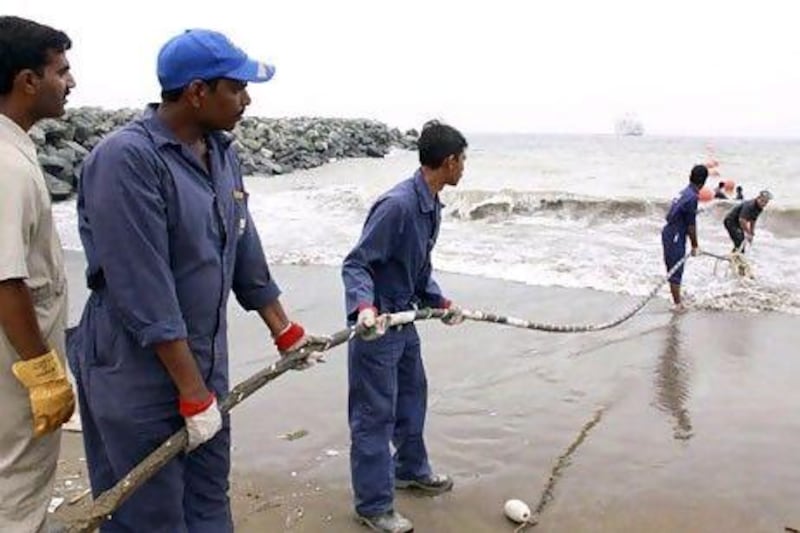Sluggish, overpriced internet connections will become a thing of the past as new broadband cables go live across the Gulf region, cable industry executives predict.
Some UAE internet users yesterday experienced slow connections because of damage to an undersea cable connecting the country with Oman. But as more internet cables are switched on, the impact of such problems will be reduced, the executives say.
The availability of more connections is also forecast to prompt a reduction in costs for using international bandwidth.
Ciena, a networking company that specialises in undersea internet connections, forecasts a 50 per cent drop in the price that Gulf telecommunications companies are charged to use international broadband networks.
Ed McCormack, the vice president and general manager of international accounts and submarine systems at Ciena, said this was partly due to more internet connections serving the region.
"There will be sharp price declines in the next year," said Mr McCormack. "I would expect a big drop in the next year - 50 per cent plus".
Rashid Abdulla, the chief executive of Batelco Bahrain, said this week that Gulf telecoms companies were being made to pay too much to connect their broadband networks to the rest of the world.
But Mr McCormack said the situation was changing. New undersea and terrestrial broadband connections to the region, as well as the upgrading of the existing infrastructure, were helping to drive down the price of international connectivity. This would "dramatically" improve the costs paid by regional telecoms companies, he said.
This was likely to result in better-value broadband packages for consumers in the Gulf. "What a consumer should expect to see is that they will get a much better broadband service. By that, I mean more capacity to their home, without seeing it marked up in price," Mr McCormack said.
One of the new broadband connections serving the region is operated by Gulf Bridge International (GBI), the Middle East's first privately owned regional cable operator.
GBI said on Sunday that its US$445 million (Dh1.63 billion) undersea cable connecting India with Europe via the Gulf and Egypt was ready for use.
The telecoms operator du said yesterday that its customers faced slower internet connections because of a severed cable connecting Dubai and Oman.
Mr McCormack said damage to undersea internet cables was an inevitability.
"Cable breaks are something you can't avoid. This is a highly trafficked area," he said. "The good thing from a Middle East perspective is that there are now enough cables in service to provide adequate diversity.
"I think we are going to see the benefit in the Middle East in terms of more reliable service, less exposure to outage."
twitter: Follow our breaking business news and retweet to your followers. Follow us





